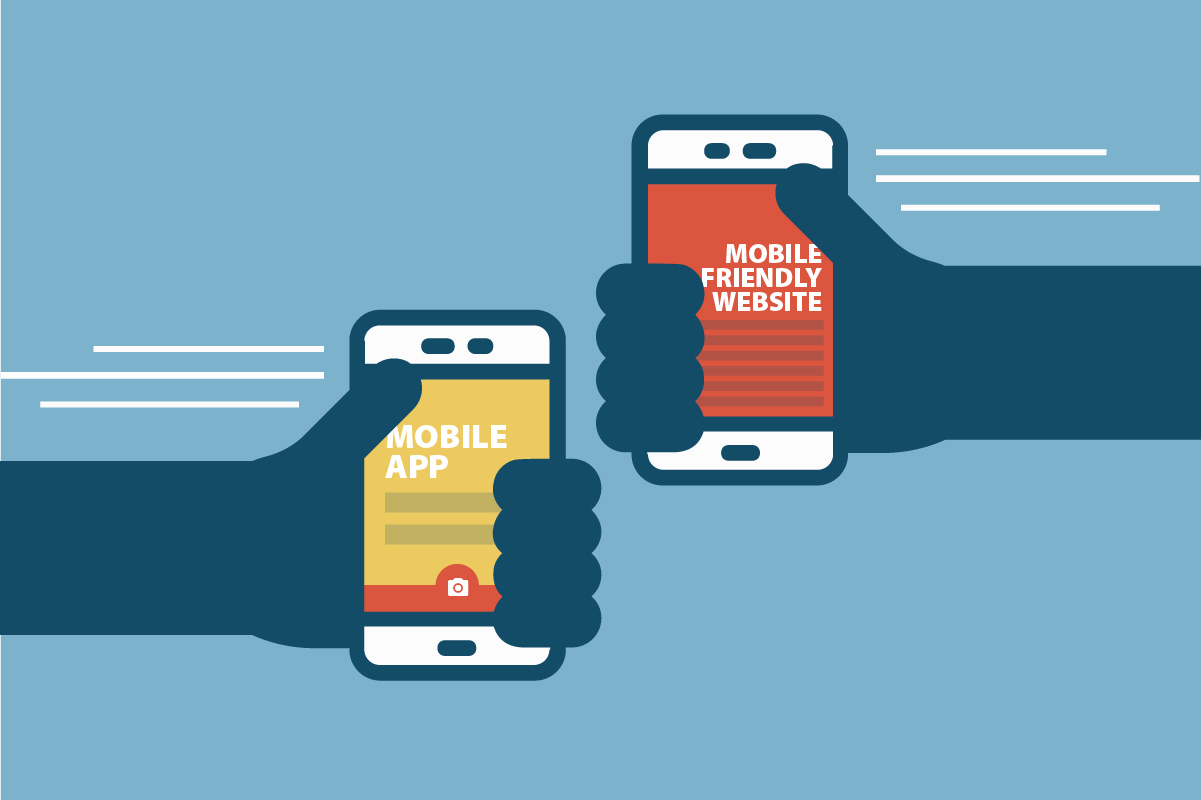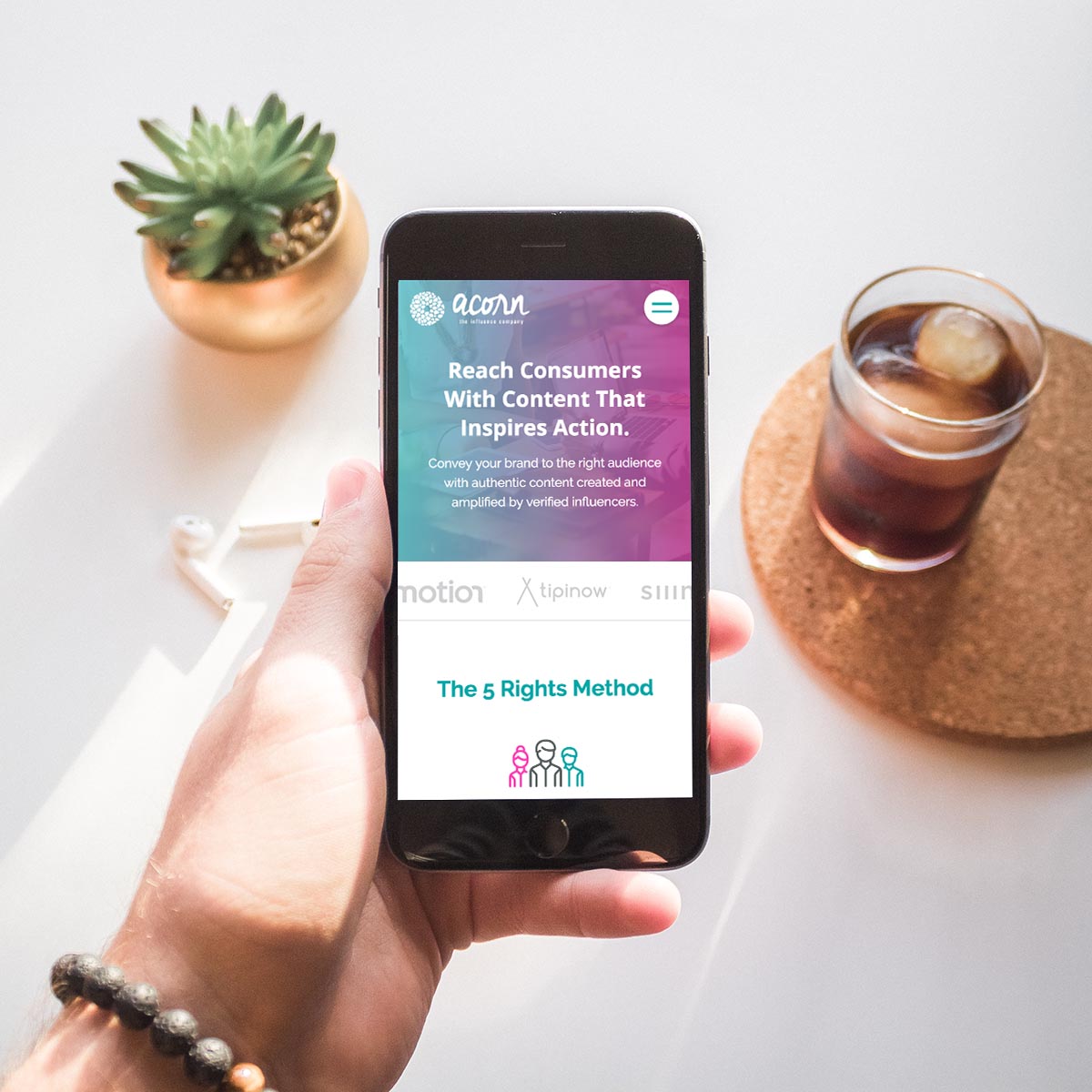 Kate Andersen |
08.23.18 |
2.5 min read
Kate Andersen |
08.23.18 |
2.5 min read Does Your Business Need a Mobile App or Website? How to Decide.

Without question, mobile use continues to skyrocket. One statistic suggests that by 2019 the number of mobile phone users worldwide is expected to reach the five billion mark. That's billion with a "b." Such high levels of mobile use are causing significant changes in the way businesses communicate, engage, and grow online.
In addition to increased social media use, websites are being designed and developed with mobile in mind, so they're responsive, fast, concise and searchable from the get-go. These sites are referred to as mobile-first, which is the approach we take on all of our projects at Matchstick Studio.
There are times, though, when a mobile-first website isn't the only answer to solving a customer's need or enhancing their relationship with your brand. Sometimes it's smart to create a native mobile app.
One example is an app we created for Leisurlist, which is a service that curates everything there is to eat, see and do in Northwest Arkansas and makes recommendations based on your personal interests. While the website is a great spot to check upcoming events, the app is essential to the success of the concept.
Leisurlist is designed to help people get out and explore, so user experience is practically 100% mobile. Having an app allows people to access information offline. It's also faster than a website. And it allows for notifications of upcoming events and syncs with calendars. These are just a few of the benefits of an app vs. website.
How do you know what's right for your business? Here's some criteria to guide your decision.
In addition to increased social media use, websites are being designed and developed with mobile in mind, so they're responsive, fast, concise and searchable from the get-go. These sites are referred to as mobile-first, which is the approach we take on all of our projects at Matchstick Studio.
There are times, though, when a mobile-first website isn't the only answer to solving a customer's need or enhancing their relationship with your brand. Sometimes it's smart to create a native mobile app.
One example is an app we created for Leisurlist, which is a service that curates everything there is to eat, see and do in Northwest Arkansas and makes recommendations based on your personal interests. While the website is a great spot to check upcoming events, the app is essential to the success of the concept.
Leisurlist is designed to help people get out and explore, so user experience is practically 100% mobile. Having an app allows people to access information offline. It's also faster than a website. And it allows for notifications of upcoming events and syncs with calendars. These are just a few of the benefits of an app vs. website.
How do you know what's right for your business? Here's some criteria to guide your decision.

When to go with an app:
- You want to create an interactive or gaming experience.
- You'd like to access features native to a phone, such as the camera or push notifications.
- You need location-based or navigational elements.
- You want users to be able to interact offline.
- You need to deliver information in real-time.
- You want to make it easy for users to find you and have frequent interaction.

When to go with a mobile-friendly website:
- Your goals are primarily for marketing purposes.
- You need people to immediately access information. Apps require users to download and install.
- You want users to easily share your link or content.
- You need to update information frequently.
- You need to launch quickly and don't want to wait for app store approval.
- You want it to easily work on all devices.
There are also situations when you need both. If you read through the list and decided an app is right for you, having a professional website can supplement your marketing and grow your online presence. You gain SEO benefits, organic traffic, and greater credibility with a website. Still not sure what combination to consider? Give us a call. We're no-pressure kind of people who love to help businesses grow.




